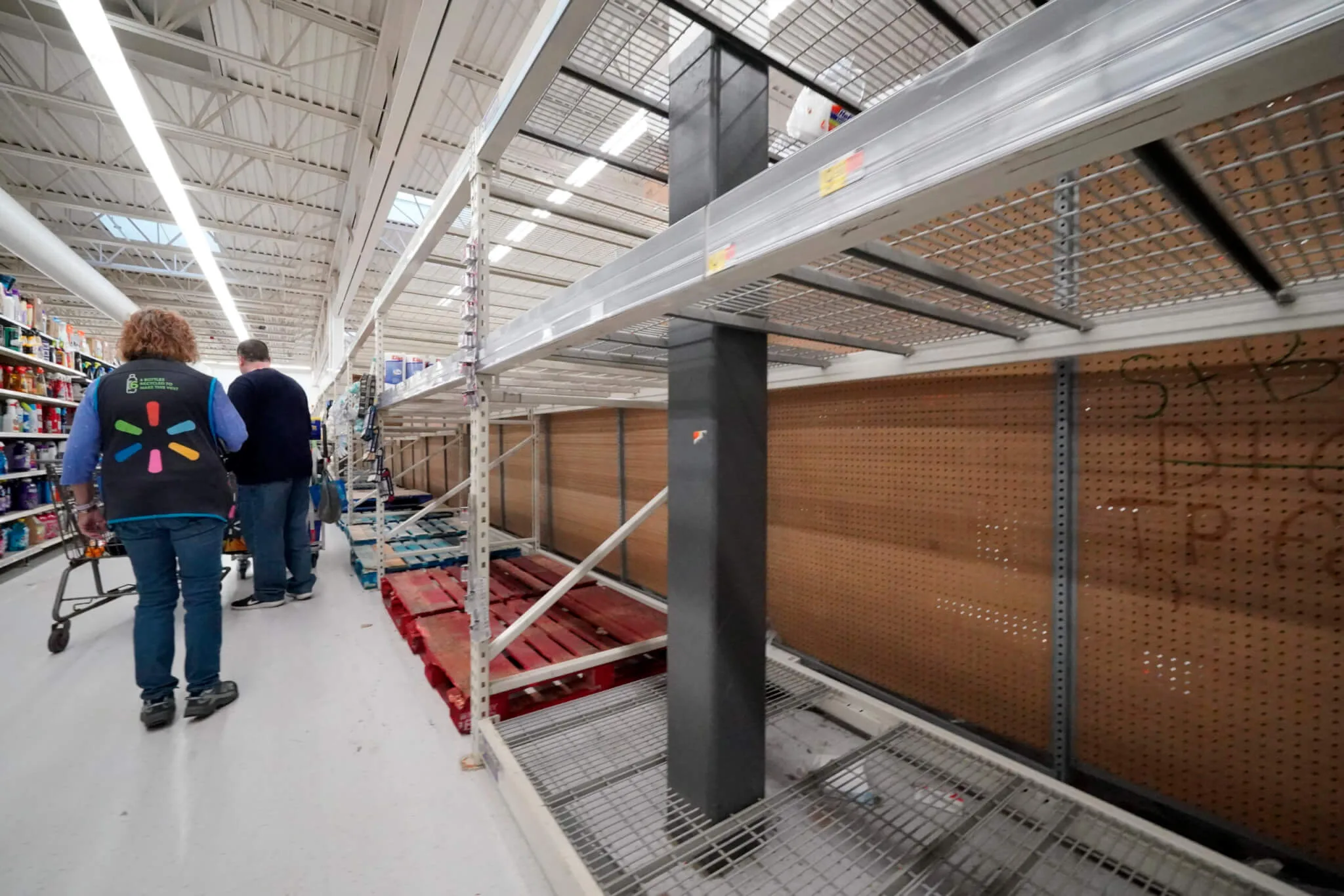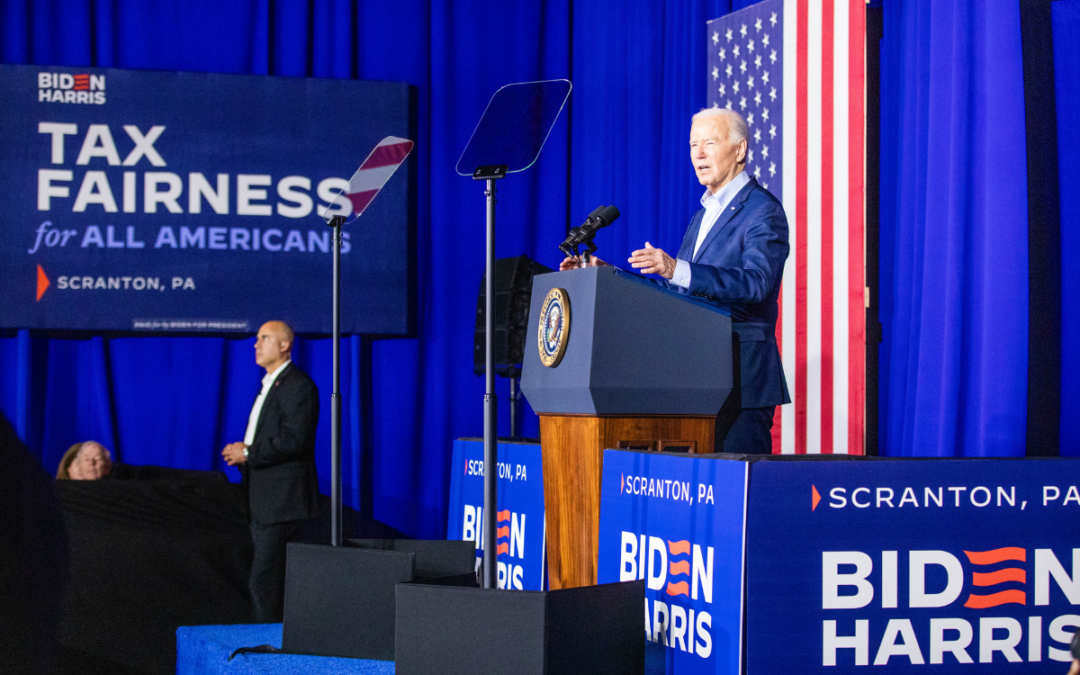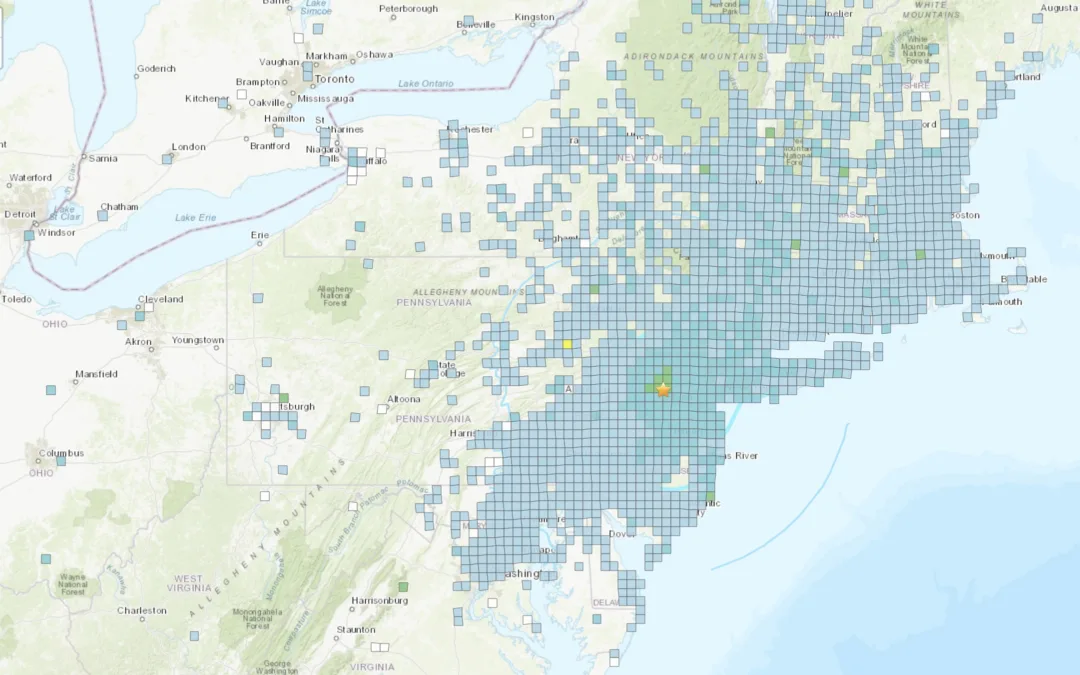
A Walmart employee stands in front of shelves that usually are stocked with toilet paper and paper towels at a Walmart in Cranberry Township, Pa, Nov. 19, 2020. (AP Photo/Gene J. Puskar)
The majority-GOP state House of Representatives failed to pass a bill that would raise the minimum wage before the legislative term ended, leaving the state’s rate the same it has been since 2009.
HARRISBURG — It has been more than 10 years since the last time the minimum wage increased in Pennsylvania. And it’s going to be even longer before those who earn $7.25 per hour see a raise.
Senate Bill 79, a bill that would have raised the minimum wage to $8 per hour, with $0.50 increases every six months until it reached $9.50 in 2022, died this year when the majority-GOP state House of Representatives did not take action on it before the legislative term ended. The bill was the closest the Legislature has come to approving a minimum wage increase in years; the state Senate had passed it by a vote of 42-7, and Gov. Tom Wolf had promised to approve it.
State Sen. Christine Tartaglione (D-Philadelphia) sponsored Senate Bill 79. She said she plans to reintroduce a minimum wage increase bill at the start of the next legislative session.
The current minimum wage is “unacceptable,” Tartaglione said. “Even $9 an hour isn’t a livable wage. I didn’t want to go with it originally, but I had to compromise.”
When she reintroduces the bill, Tartaglione said, she is going to stick with her original plan, which would call for raising the minimum wage to $12 per hour with $0.50 increases every six months until it reaches $15. After that, increases would be linked to annual cost of living adjustments.
The new bill would also raise the wage for tipped employees, which is currently $2.83 per hour, and require employers to pay out in cash any gratuity added on a credit card instead of including it on an employee’s paycheck as part of their wage.
“One in eight Pennsylvanians live in poverty, and one in four are living in near-poverty,” Tartaglione said. “I simply cannot walk away from legislation that could provide our working poor with at least some relief.”
What Is the Minimum Wage in Pennsylvania?
The minimum wage in Pennsylvania is $7.25 per hour, which is the same as the federal minimum wage.
What Is the Minimum Wage in Surrounding States?
Twenty-nine states, including all of our neighboring states, have already raised the minimum wage beyond the federal rate of $7.25 per hour.
RELATED: The Pennsylvania Workers Barely Scraping by on an ‘Offensive’ Base Wage of $2.83 Per Hour
The minimum wage in Ohio is $8.70 per hour, and it is set to increase on Jan. 1 to $8.80 per hour.
The minimum wage in West Virginia is $8.75 per hour.
In Delaware, workers over the age of 18 who are in their first 90 days at a new job and workers ages 14-17 earn $8.75 per hour. After 90 days of employment, workers over the age of 18 get an increase to $9.25 per hour.
The minimum wage in Maryland is $11 per hour, and it is set to increase on Jan. 1 to $11.60 per hour for employers who have fewer than 14 employees and $11.75 per hour for employers with more than 15 employees.
The minimum wage in New Jersey is $11 per hour for most employers, and it is set to increase $1 each year until it reaches $15 per hour in 2024. Employers with fewer than six employees pay $10.30 per hour now, and will increase wages by $0.80 per hour each year until 2024, and then $0.70 per hour in 2025.
The minimum wage for most of New York state is $11.80, and it is set to increase on Dec. 31 to $12.50 per hour. The minimum wage is $13 per hour in Long Island and Westchester, and it is set to increase on Dec. 31 to $14 per hour. And the minimum wage is $15 per hour in New York City.
Why Is the Minimum Wage in Pennsylvania So Low?
The minimum wage in Pennsylvania has been stuck at $7.25 per hour because the majority-GOP state Legislature will not approve an increase.
The Legislature last voted to increase the minimum wage in July 2006, raising it from $5.15 per hour to $7.15 per hour. Tartaglione was the prime sponsor of that bill.
“People were against it even back then,” Tartaglione said. “But all that money went right back into the economy.”
When the Legislature passed the minimum wage increase in 2006, legislators included a provision that prohibits officials in municipalities from setting a local wage. The only way the minimum wage can go up is if the state Legislature approves a new statewide rate, or Congress approves a new national rate.
Every year since Gov. Tom Wolf took office in 2015, he has called for an increase in the minimum wage. He has estimated an increase could generate as much as $50 million in state tax revenue, and included that estimate in the state budget. Every year, the Legislature has refused to approve a minimum wage increase, and the state tax revenue associated with it has been removed from the state budget.
Every year for the past few years, various Democratic legislators have proposed increases to the minimum wage.
Democratic state senators have made proposals to raise the minimum wage to $12 per hour immediately and then incrementally after that, proposals to raise the wage to $15 per hour, and proposals to allow only second-class counties (the only second-class county is Allegheny County, where Pittsburgh is located) to raise the minimum wage. The majority-GOP state Senate Labor & Industry Committee sat on all of the bills until the legislative term ran out.
Senate Bill 79 was the only minimum wage increase to make it out of the senate Labor & Industry Committee and the Senate, and go to the state House for consideration.
Democratic state representatives have made a few different proposals to increase the minimum wage to $12 immediately and then incrementally after that, and proposals to allow municipalities to set their own minimum wage. The majority-GOP state House Labor & Industry Committee sat on all of the bills until the legislative term ran out.
RELATED: We Did the Math. It’s Nearly Impossible to Survive on Minimum Wage in Pennsylvania.
The state Senate Labor & Industry Committee and the state House Labor & Industry Committee each refused to vote on separate resolutions urging Congress to raise the federal minimum wage to $15 per hour.
Who Would Benefit From a Minimum Wage Increase?
More than 90,700 workers across the state would benefit from any minimum wage increase. And another 1.6 million workers would benefit if the minimum wage was increased to $15 per hour.
Contrary to popular belief, most of those workers are adults, according to the Keystone Research Center.
Of the workers who earn less than $15 per hour:
- 55% work full-time hours at the minimum-wage job
- 61% are women
- 27% are people of color
- 24% are parents
Pennsylvania taxpayers also would benefit. If the minimum wage increases to $12 per hour, approximately 70,000 workers will no longer need Medicaid benefits, which will save the state over $150 million, the governor’s office has estimated.
Would a Minimum Wage Increase Cause Unemployment?
A recent study of more than 750 counties across the country found that increasing the minimum wage would likely raise incomes, but not cause significant job losses.
Neighboring states, such as New Jersey, that have raised the minimum wage have had both wage and job growth in industries most affected by a minimum wage increase, according to a study by the Keystone Research Center.
“If you want to have job retention,” Tartaglione said, “we need to pay a livable wage.”
Politics

It’s official: Your boss has to give you time off to recover from childbirth or get an abortion
Originally published by The 19th In what could be a groundbreaking shift in American workplaces, most employees across the country will now have...

Biden talks economic and tax plans in Scranton
President Joe Biden traveled to Pennsylvania on Tuesday and framed the 2024 election as a choice between Scranton values and Mar-a-Lago values....

Trump says he’s pro-worker. His record says otherwise.
During his time on the campaign trail, Donald Trump has sought to refashion his record and image as being a pro-worker candidate—one that wants to...
Local News

Railroad agrees to $600 million settlement for fiery Ohio derailment, residents fear it’s not enough
Norfolk Southern has agreed to pay $600 million in a class-action lawsuit settlement for a fiery train derailment in February 2023 in eastern Ohio,...

4.8 magnitude earthquake centered in New Jersey felt across Pennsylvania Friday morning
According to the U.S. Geological Survey, the quake’s impact in Pennsylvania was primarily felt in the eastern part of the state, though the...






